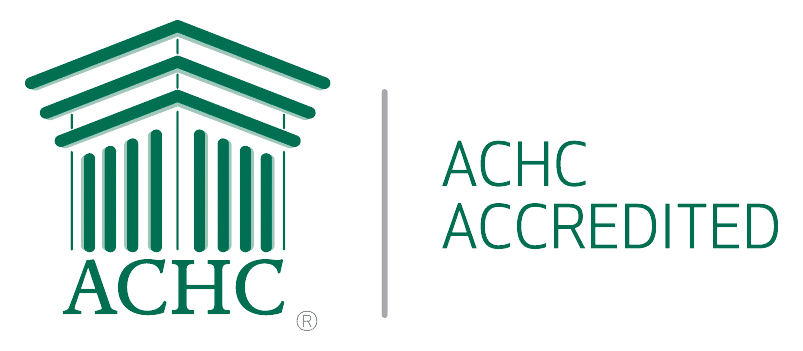Transitioning from a hospital stay back to home can be a very challenging and stressful time for patients and families in Killeen. Many patients may struggle to manage their hospital-to-home recovery, leading to a higher risk of complications and hospital readmissions. However, with the support of home healthcare services, this transition can be made much smoother and more manageable for everyone involved. Read on to explore the many benefits of home health care and why it might be the best transitional care solution for you or a loved one.
Most Common Reasons for Hospital Readmission
After being discharged from the hospital, many patients find themselves back in the hospital within a matter of weeks for various reasons. Some common recovery complications leading to hospital readmission include:
- Medication Management: Patients may struggle to manage their medications properly, which can lead to complications or worsening of their condition.
- Lack of Follow-up Care: Without proper follow-up care, patients may not receive the necessary support to continue their recovery at home.
- Inadequate Home Environment: Some patients may return to a home environment that is not conducive to their recovery, leading to setbacks in their healing process.
- Poor Communication: Miscommunication between healthcare providers, patients, and family caregivers can result in misunderstandings and mistakes in care.
- Lack of Support: Patients without a strong support system may struggle to manage their recovery independently.
Hospital to Home Reimagined: The Many Benefits of Home Health Care
Addressing these common reasons for hospital readmission can help home healthcare providers play a vital role in preventing unnecessary hospital stays and supporting patients in their recovery journey.
Home health care offers a range of benefits to patients transitioning from the hospital to home. Using a holistic approach, home healthcare professionals provide medical, nursing, rehabilitation, or other services in a patient’s home to promote recovery and independence. Some of the primary advantages of receiving healthcare services at home include:
Personalized Care
Home healthcare providers tailor their services to meet each patient’s unique needs, ensuring they receive personalized and attentive care. This customized approach allows for individualized treatment plans, focusing on the specific needs and goals of the patient. Providers work closely with patients and family caregivers to create a care plan that addresses their unique medical, physical, and emotional needs, fostering more effective and efficient care.
Continuity of Care
Receiving care at home empowers patients to maintain continuity in their treatment plan and recovery process, which may lead to better healing outcomes. Providers work closely with the patient’s healthcare team to ensure seamless communication and coordination of care. This collaboration helps prevent gaps in care, ensures that all aspects of the treatment plan are followed consistently, and promotes a smooth transition from hospital to home.
Enhanced Comfort and Convenience
As they say, “There’s no place like home.” Recovering at home allows patients to be in a familiar and comfortable environment, reducing stress and anxiety during their recovery. Being in one’s home can positively impact a patient’s well-being and overall recovery. Recovering in a familiar setting can help reduce feelings of isolation and loneliness, promote security and independence, and enhance the patient’s overall quality of life.
Additionally, receiving care at home eliminates the need for travel to and from healthcare facilities, saving time and reducing the burden on patients and their families.
Heightened Independence
With the support of home health services, patients can regain their independence and autonomy as they work towards their recovery goals. Home healthcare professionals focus on helping patients become more self-sufficient and confident in managing their health. They provide education, training, and support to help patients build their skills and confidence in performing daily activities, managing medications, and making healthy lifestyle choices.
This empowerment fosters self-reliance, allowing patients to take an active role in their recovery and regain a sense of normalcy in their daily routines.
Family Involvement
Home healthcare providers encourage family caregivers to actively participate in their loved one’s care, providing emotional support and assistance with day-to-day tasks. Family involvement is crucial to the patient’s health and well-being, as caregivers can provide additional support, encouragement, and companionship during recovery. Home health workers collaborate with families to ensure patients receive comprehensive care addressing their medical and emotional needs.
By involving family caregivers in the care plan, home health care promotes a holistic approach to recovery that considers the patient’s social and emotional support system.
How to Find the Best Home Health Care Provider in Killeen
Once you’ve decided to start home health care, finding a reputable provider with transitional care services to support your recovery journey is vital. Be sure to incorporate these tips into your search strategy:
- Do Your Research: Start by researching different home health care agencies in your area. Look for agencies that are licensed, accredited, and have a good reputation for providing high-quality care.
- Seek Referrals: Talk to your healthcare provider, friends, family members, or other caregivers for recommendations of home healthcare providers they’ve used and trust.
- Check Credentials: Ensure the agency has the necessary licenses, certifications, and qualifications to provide the services your loved one needs.
- Meet with Potential Providers: Schedule meetings or interviews with potential providers to discuss your loved one’s needs, preferences, and expectations.
- Review Care Plans: Ask to see sample care plans and schedules to ensure the provider can meet your loved one’s specific needs and deliver the required level of care.
Final Thoughts About Receiving Transitional Care at Home
Transitioning from the hospital to home can be a real game-changer for the entire family. Thankfully, with the support of home healthcare services, this transition can be much smoother and more manageable for patients and their families. By addressing common reasons for hospital readmission, providing personalized care, and involving family caregivers, home health care can significantly improve the recovery process and quality of life for patients recovering at home.
Choosing a reputable home healthcare provider is essential for ensuring your loved one receives the best care and support during their recovery journey. Remember, home health’s primary purpose is to ease the transition by providing the necessary care and support for a successful recovery in the comfortable surroundings of home.
Dignified In-Home Transitional Care for Families in Killeen
Transitioning from hospital to home and receiving the quality care you need can be challenging. If you need assistance, contact TexMed Home Health & Personal Care in Killeen. As a fully licensed and accredited provider, our highly trained professionals can deliver the home health care services you or your loved one deserve—including Companionship Care, Household Duties, Meal Planning, Medication Supervision, Intravenous Therapy, Occupational Therapy, Physical Therapy, Skilled Nursing, and Speech Therapy.
While assisting clients in Killeen, Copperas Cove, and Temple, our agency’s focus is maintaining our client’s quality of life, along with their dignity, self-esteem, and independence. For your added convenience, all our home health services can be individually personalized into an affordable package when and where you need them! Please visit TexMed Home Health & Personal Care now to learn more about our personalized hospital-to-home solutions or schedule a FREE initial consultation for someone in our service area.






